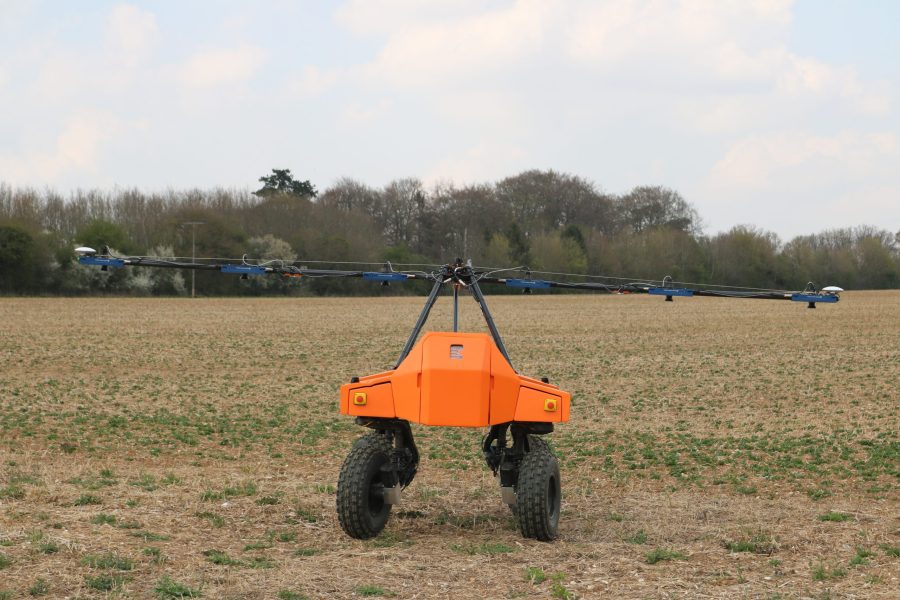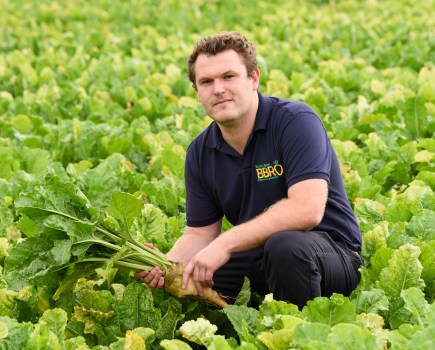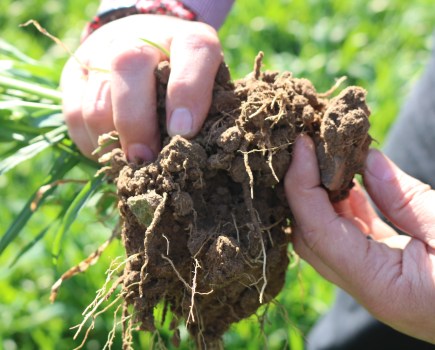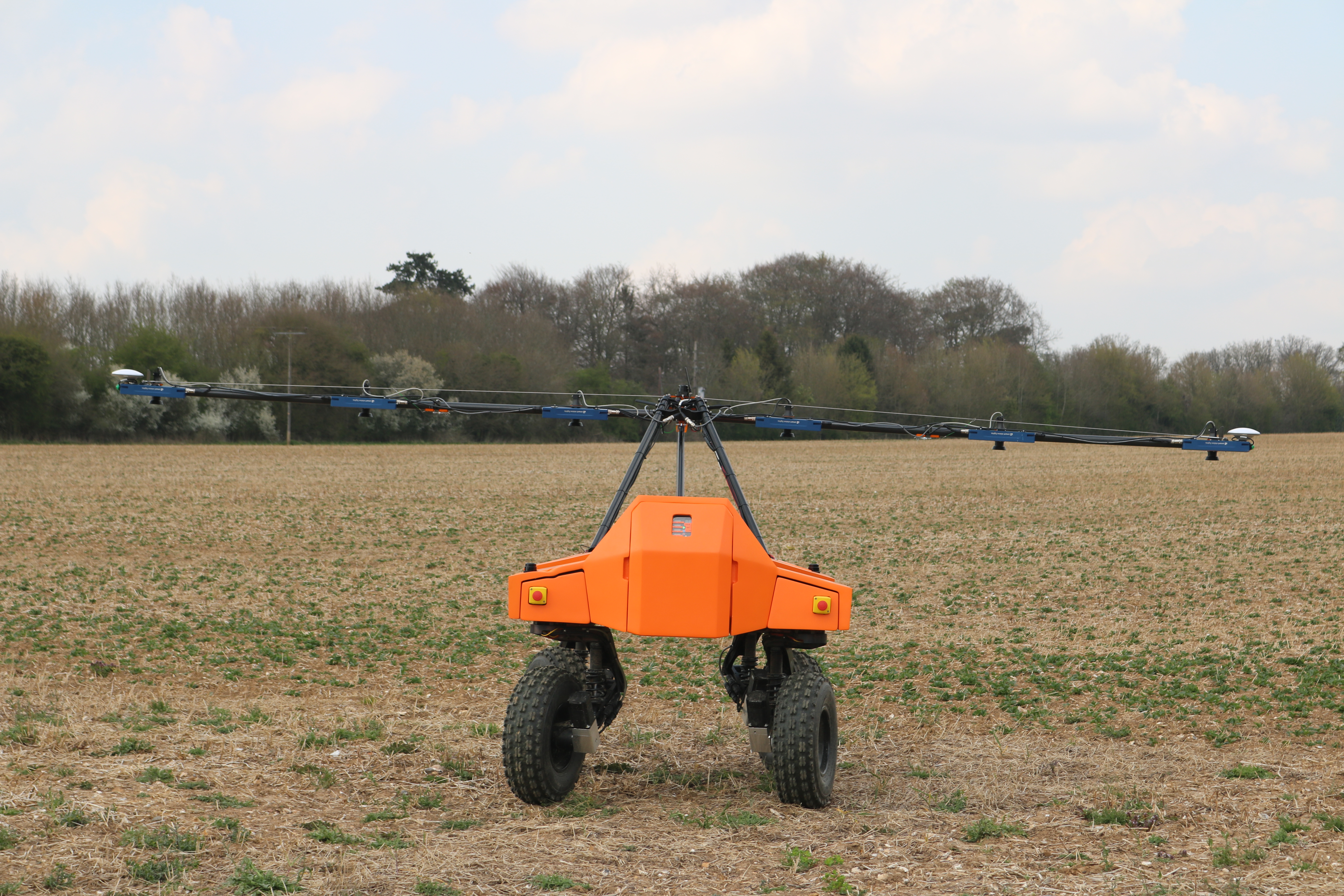 British agritech start-up, Small Robot Company, has announced the launch of its first commercial robot – ‘Tom’. Charlotte Cunningham reports.
British agritech start-up, Small Robot Company, has announced the launch of its first commercial robot – ‘Tom’. Charlotte Cunningham reports.
The ‘Tom’ monitoring robot has now been delivered to commercial specification and is entering service on UK farms. Customers so far include the Lockerley Estate, where robots are a key part of its regenerative farming strategy, as well as the Waitrose & Partners and the National Trust.
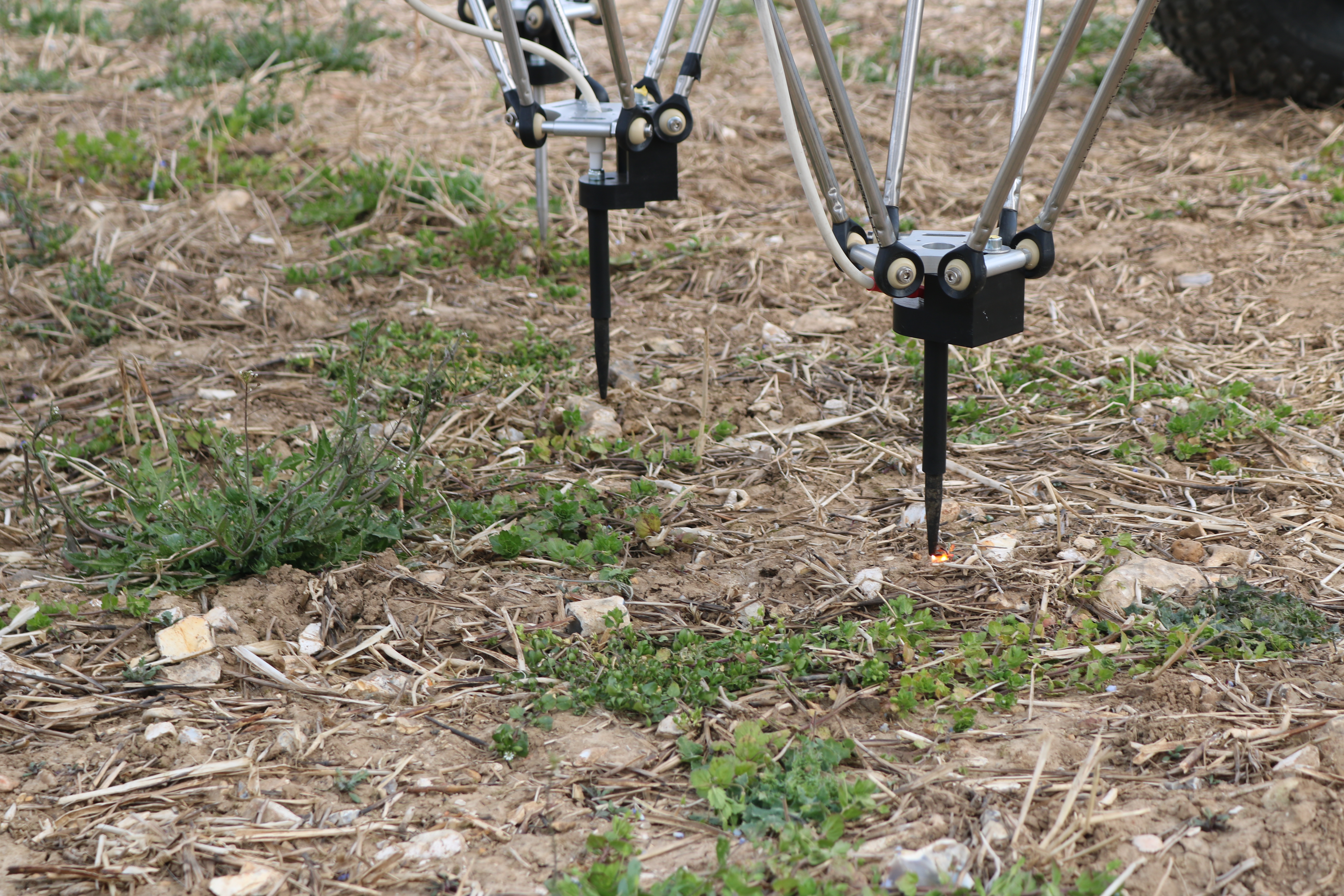 SRC’s first service using Tom will be per plant weeding. This is now in field trials, with Tom scanning first arable crops to detect weeds, and robot weeding prototype ‘Dick’ then zapping individual weeds with electrical ‘lightning strikes’, using no chemicals. On-farm pilots of the service will commence this autumn.
SRC’s first service using Tom will be per plant weeding. This is now in field trials, with Tom scanning first arable crops to detect weeds, and robot weeding prototype ‘Dick’ then zapping individual weeds with electrical ‘lightning strikes’, using no chemicals. On-farm pilots of the service will commence this autumn.
With up to 95% of chemicals wasted in the current farming system, this new non-chemical weeding technology will be significantly more nature-friendly and better for biodiversity, claims SRC. In future, Tom will also gather data from multiple sources, such as sensors and microphones for birdsong and pollinators, to assess soil health and biodiversity.
Manufactured in Northumberland by Tharsus, Tom will also be going into 5G trials in Dorset in the autumn in the £8 million 5G RuralDorset project.
World-first milestone
In a world-first, SRC demonstrated its new per plant weeding capabilities in technology demos at the Lockerley Estate, Hampshire. SRC showed a pair of robots, ‘Tom’ and ‘Dick’, working in concert with its artificial intelligence Advice Engine ‘Wilma’ to identify and kill individual weeds with electricity. The ‘Dick’ robot prototype deploys RootWave non-chemical weeding technology mounted on an igus delta robotic arm to zap the weeds.
SRC says this is a major technological milestone which will enable automated, precision, per-plant weeding both at scale and autonomously, for the first time providing a post-chemical future for arable farmers.
“To prove the power of per plant farming we are focusing on answering the biggest problem that farmers face at the moment which is weeding,” said Ben Scott-Robinson, CEO and co-founder, Small Robot Company, “We’ve now proved we can deliver per plant weeding: a world first. The focus for us now is being able to move forward to deliver this, repeatedly, and at scale. This will be game-changing.”
“Weeds, especially black grass, are crippling. It’s costing the industry a fortune,” commented Craig Livingstone, Lockerley Estate farm manager and National Food Strategy advisory panel. “Resistance to herbicides is the number one problem. The robot offers us a real chance to stop using artificial inputs, which goes towards our regenerative model of farming.”.

